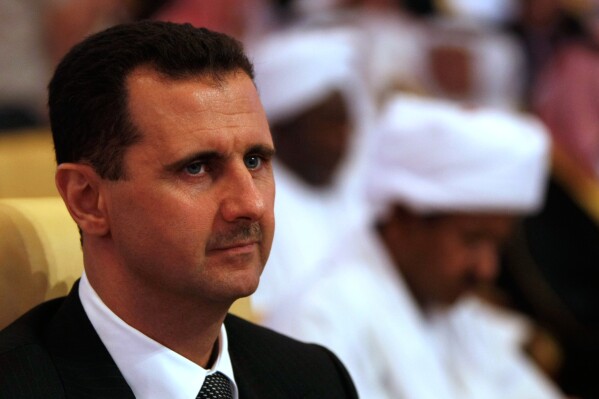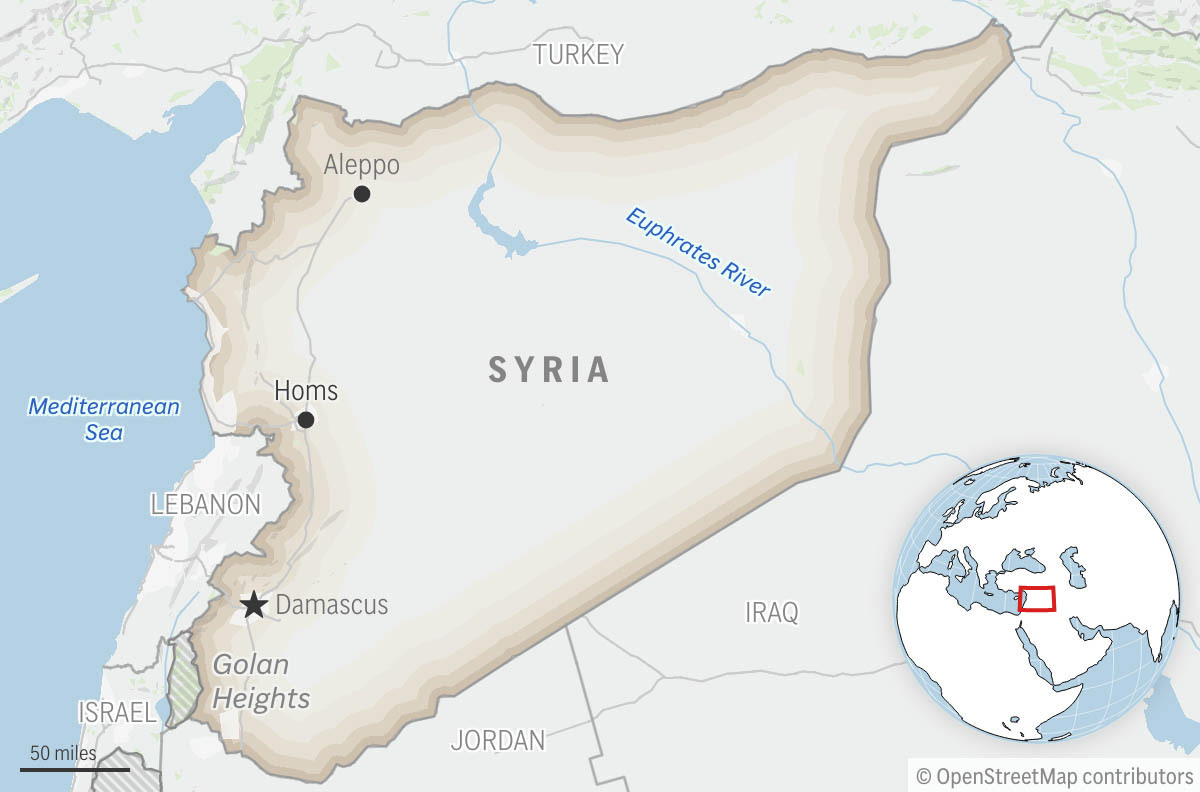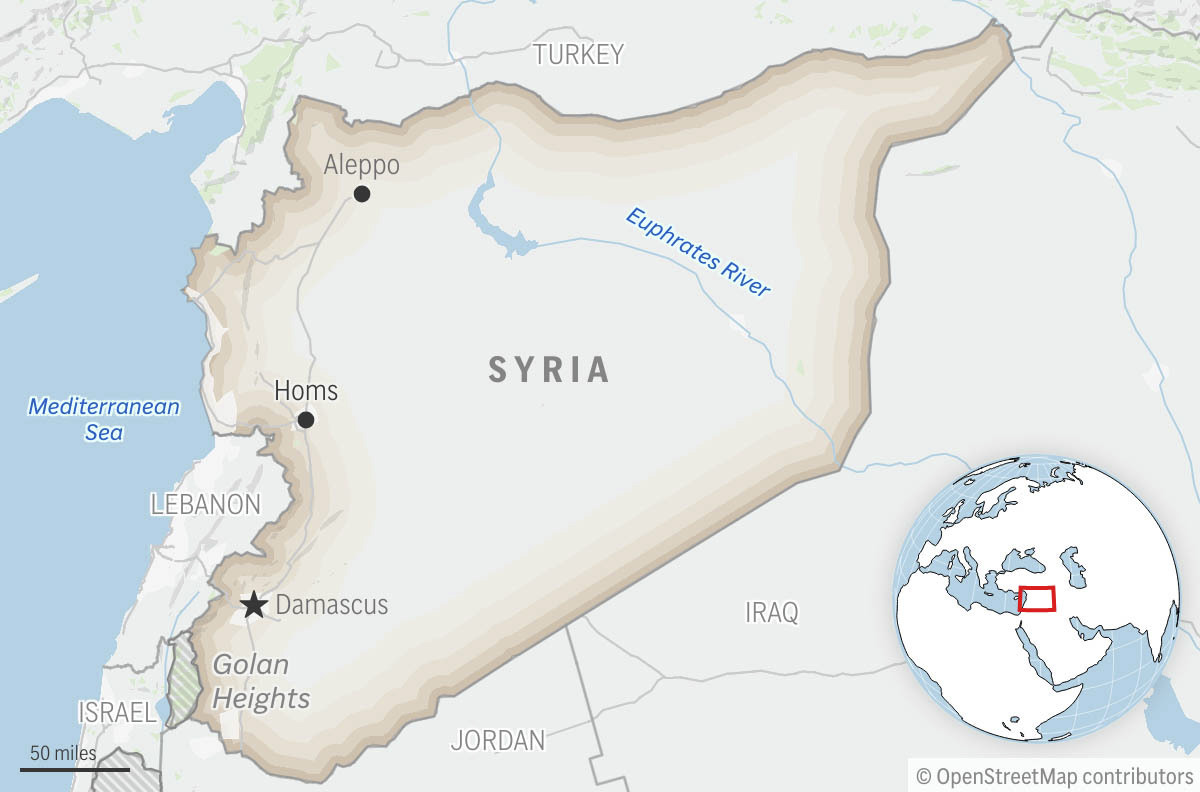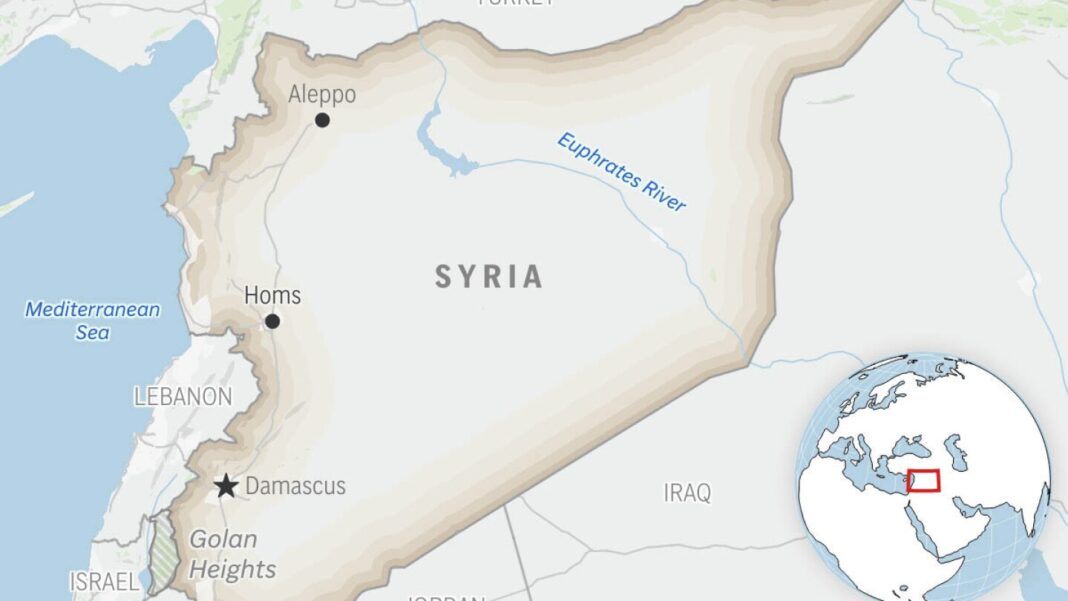In a stunning display of regional diplomacy, Saudi Arabia and Qatar have taken a bold step towards reconciling the fractured relations of the past, announcing a historic agreement to pay off Syria’s debt to the World Bank. This unprecedented move marks a significant shift in the dynamics of Middle Eastern politics, as two of the region’s most influential powers put aside their differences to support the war-torn nation’s path to recovery. As the Syrian people struggle to rebuild their shattered economy and infrastructure, this unexpected gesture of solidarity could be the catalyst for a new era of cooperation and stability in the region. What motivated this unexpected act of generosity, and what implications will it have for the future of Middle Eastern politics?
Syria’s Debt to the World Bank: A Turning Point in Recovery Efforts

In a significant development, Saudi Arabia and Qatar have agreed to pay off Syria’s outstanding debt to the World Bank, a move that is expected to facilitate the resumption of the international institution’s support to the war-torn country. The joint statement by the finance ministries of Saudi and Qatar announced that the decision was made during this month’s meetings in Washington by the World Bank and IMF.
The payment of Syria’s nearly $15 million debt to the World Bank is seen as a crucial step in the country’s recovery efforts. Syria’s Foreign Ministry has expressed gratitude to the two oil and gas-rich nations, stating that the move opens the way for activating cooperation toward recovery and reconstruction after a 14-year conflict that killed half a million people and caused widespread destruction in the country.

Regional Response and Diplomatic Efforts
Saudi Arabia and Qatar’s Role in Facilitating World Bank Support
The joint decision by Saudi Arabia and Qatar to pay off Syria’s debt to the World Bank highlights the significant role that these countries are playing in facilitating the international institution’s support to Syria. Since the fall of Bashar Assad’s government, Saudi Arabia and Qatar have been main backers of the country’s new leadership.
The payment of Syria’s debt is expected to facilitate the resumption of World Bank support and activities in Syria, which have been stalled for more than 14 years. The joint Saudi-Qatari statement emphasized that the loan payment will allow Syria to take allotments from the World Bank in the near future for “vital sectors.”

Western Sanctions: An Obstacle to Development Projects
A major obstacle to development projects in Syria is the Western sanctions that were imposed on the country more than a decade ago, mainly targeting Assad’s government and officials. Despite some easing of restrictions by the US, EU, and British governments, these sanctions continue to pose significant challenges to the Syrian government’s efforts to rebuild the country.
The Trump administration has yet to formally recognize the new Syrian government led by President Ahmad al-Sharaa, and the sanctions imposed on Damascus under Assad remain in place. However, Washington has eased some restrictions, including a general license issued in January that authorizes certain transactions with the Syrian government.
The European Union has also begun to ease some energy and transport sanctions and banking restrictions against Syria, suspending measures targeting oil, gas, and electricity as well as transport, including the aviation sector. The British government has lifted sanctions against a dozen Syrian entities, including government departments and media outlets.

Rebuilding Syria: A Massive Undertaking
The task of rebuilding Syria is a massive undertaking that requires significant financial resources and international support. The United Nations estimates that it would cost at least $250 billion to rebuild Syria, with some experts suggesting that the number could reach at least $400 billion.
Syria’s infrastructure suffered widespread destruction during the conflict that broke out in March 2011. Last month, Qatar began supplying Syria with natural gas through Jordan to ease the long hours of electricity cuts that are common in much of the country.
International Implications and Analysis
Impact on Regional Dynamics
The decision by Saudi Arabia and Qatar to pay off Syria’s debt to the World Bank is likely to have significant implications for regional dynamics. The move is seen as a positive development in the context of Arab states’ efforts to promote regional cooperation and stability.
The involvement of Saudi Arabia and Qatar in Syria’s recovery efforts is likely to lead to increased cooperation between Arab states, which could have a positive impact on regional stability. The implications of this development are significant, particularly in the context of Iran’s influence in the region.
Expert analysis suggests that the move by Saudi Arabia and Qatar could lead to a shift in the regional balance of power, potentially weakening Iran’s influence in Syria. However, this development also raises questions about the potential for increased competition between Arab states and Iran in the region.
Global Economic Ramifications
The announcement by Saudi Arabia and Qatar to pay off Syria’s debt to the World Bank is likely to have significant global economic ramifications. On one hand, it could facilitate the resumption of World Bank support and activities in Syria, which could lead to increased economic growth and stability in the country. This, in turn, could have positive effects on the global economy, as a stable Syria could lead to increased trade and investment in the region.
However, there are also potential risks and challenges associated with investing in Syria. The country’s infrastructure has suffered wide destruction during the conflict, and there are concerns about the security and stability of the country. Additionally, Western sanctions against Syria remain in place, which could make it difficult for international organizations and donors to provide support.
Assessment of the potential economic benefits
The World Bank has estimated that it would cost at least $250 billion to rebuild Syria. However, some experts now say that this number could reach as high as $400 billion. The payment of Syria’s debt to the World Bank could facilitate the resumption of World Bank support and activities in Syria, which could lead to increased economic growth and stability in the country.
Discussion of the potential risks and challenges
There are several potential risks and challenges associated with investing in Syria. The country’s infrastructure has suffered wide destruction during the conflict, and there are concerns about the security and stability of the country. Additionally, Western sanctions against Syria remain in place, which could make it difficult for international organizations and donors to provide support.
Analysis of the implications for global economic stability
The implications of the announcement by Saudi Arabia and Qatar to pay off Syria’s debt to the World Bank are likely to be far-reaching. A stable Syria could lead to increased trade and investment in the region, which could have positive effects on the global economy. However, there are also potential risks and challenges associated with investing in Syria, and it remains to be seen how the country will recover from the conflict.
Humanitarian and Security Concerns
The humanitarian crisis in Syria is one of the worst in the world, with millions of people displaced and many more in need of aid. The conflict has also had a devastating impact on the country’s infrastructure, leaving many people without access to basic necessities such as food, water, and shelter.
Examination of the humanitarian crisis
The humanitarian crisis in Syria is a major concern for the international community. The conflict has led to the displacement of millions of people, and many more are in need of aid. The World Bank has estimated that it would cost at least $250 billion to rebuild Syria, but the actual cost could be much higher.
Discussion of the security concerns
The security situation in Syria is highly volatile, with many different factions and groups fighting for control. This has led to a high level of violence and instability, and it remains to be seen how the country will be able to recover from the conflict.
Analysis of the potential impact on regional and global security
The potential impact of the announcement by Saudi Arabia and Qatar to pay off Syria’s debt to the World Bank on regional and global security is likely to be significant. A stable Syria could lead to increased stability in the region, which could have positive effects on global security. However, there are also potential risks and challenges associated with investing in Syria, and it remains to be seen how the country will recover from the conflict.
Practical Aspects and Next Steps
World Bank Support and Activities
The World Bank has a long history of providing support to Syria, dating back to the 1950s. The bank has provided a wide range of financial and technical assistance to the country, including support for infrastructure development, healthcare, and education.
Overview of the World Bank’s role in supporting development projects in Syria
The World Bank has played a key role in supporting development projects in Syria, particularly in the areas of infrastructure development, healthcare, and education. The bank has provided a wide range of financial and technical assistance to the country, and has worked closely with the Syrian government and other donors to support development projects.
Discussion of the types of projects that may be funded by the World Bank
The World Bank has a long history of providing support to Syria, and has funded a wide range of development projects in the country. These projects have included support for infrastructure development, healthcare, and education, as well as support for small and medium-sized enterprises and agricultural development.
Analysis of the potential for increased economic growth and stability in Syria
The potential for increased economic growth and stability in Syria is significant, particularly if the country is able to rebuild its infrastructure and restore its economy. The World Bank has estimated that it would cost at least $250 billion to rebuild Syria, but the actual cost could be much higher. However, if the country is able to rebuild its infrastructure and restore its economy, it could lead to increased economic growth and stability, which could have positive effects on the global economy.
Implementation and Challenges
Examination of the challenges associated with implementing development projects in Syria
Implementing development projects in Syria is likely to be a complex and challenging process, particularly given the country’s history of conflict and instability. There are a number of challenges that will need to be addressed, including the need to rebuild the country’s infrastructure and restore its economy, as well as the need to address the humanitarian crisis and restore stability to the country.
Discussion of the need for cooperation between the Syrian government, international organizations, and donors
Cooperation between the Syrian government, international organizations, and donors will be essential in implementing development projects in Syria. The Syrian government will need to work closely with international organizations and donors to identify priorities and develop strategies for rebuilding the country’s infrastructure and restoring its economy. International organizations and donors will also need to work together to provide support for development projects in Syria.
Analysis of the potential for increased transparency and accountability in development projects
In order to ensure that development projects in Syria are successful, it will be essential to increase transparency and accountability. This can be achieved through the use of transparent and accountable financial management systems, as well as through the establishment of independent monitoring and evaluation mechanisms.
Way Forward and Future Prospects
Discussion of the potential for increased investment and economic growth in Syria
The potential for increased investment and economic growth in Syria is significant, particularly if the country is able to rebuild its infrastructure and restore its economy. The World Bank has estimated that it would cost at least $250 billion to rebuild Syria, but the actual cost could be much higher. However, if the country is able to rebuild its infrastructure and restore its economy, it could lead to increased economic growth and stability, which could have positive effects on the global economy.
Analysis of the challenges and obstacles that may be faced in the coming months and years
The challenges and obstacles that will be faced in the coming months and years will be significant, particularly given the country’s history of conflict and instability. There are a number of challenges that will need to be addressed, including the need to rebuild the country’s infrastructure and restore its economy, as well as the need to address the humanitarian crisis and restore stability to the country.
Examination of the potential for a more stable and prosperous future for the people of Syria
A more stable and prosperous future for the people of Syria is possible, but it will require a concerted effort from the Syrian government, international organizations, and donors. The key to success will be the ability to rebuild the country’s infrastructure and restore its economy, as well as the ability to address the humanitarian crisis and restore stability to the country. With the right support and resources, it is possible that Syria could become a stable and prosperous country once again, and a key player in the global economy.
Conclusion
In conclusion, the recent agreement between Saudi Arabia and Qatar to pay back Syria’s debt to the World Bank marks a significant turning point in the region’s efforts to rebuild and recover from years of conflict. As discussed in this article, the deal not only alleviates Syria’s financial burden but also signals a shift towards regional cooperation and a willingness to put aside differences for the greater good. The implications of this agreement are far-reaching, with the potential to stimulate economic growth, foster stability, and pave the way for further reconciliation in the region.
As we move forward, it will be essential to monitor the implementation of this agreement and its impact on Syria’s reconstruction efforts. The international community must also continue to provide support and resources to help the country rebuild and recover. Moreover, this agreement sets a precedent for regional cooperation and offers a glimmer of hope for resolving other long-standing conflicts in the region. As the Middle East continues to navigate the complexities of geopolitics and economic development, this deal serves as a powerful reminder that even the most unlikely of partners can come together to achieve a common goal.
Ultimately, the Saudi Arabia-Qatar agreement to pay back Syria’s debt to the World Bank serves as a beacon of hope in a region often plagued by conflict and division. As we look to the future, it is imperative that we recognize the power of regional cooperation and diplomacy in shaping a more peaceful and prosperous Middle East. By working together, even the most intractable problems can be solved, and a brighter future can be forged for generations to come.
